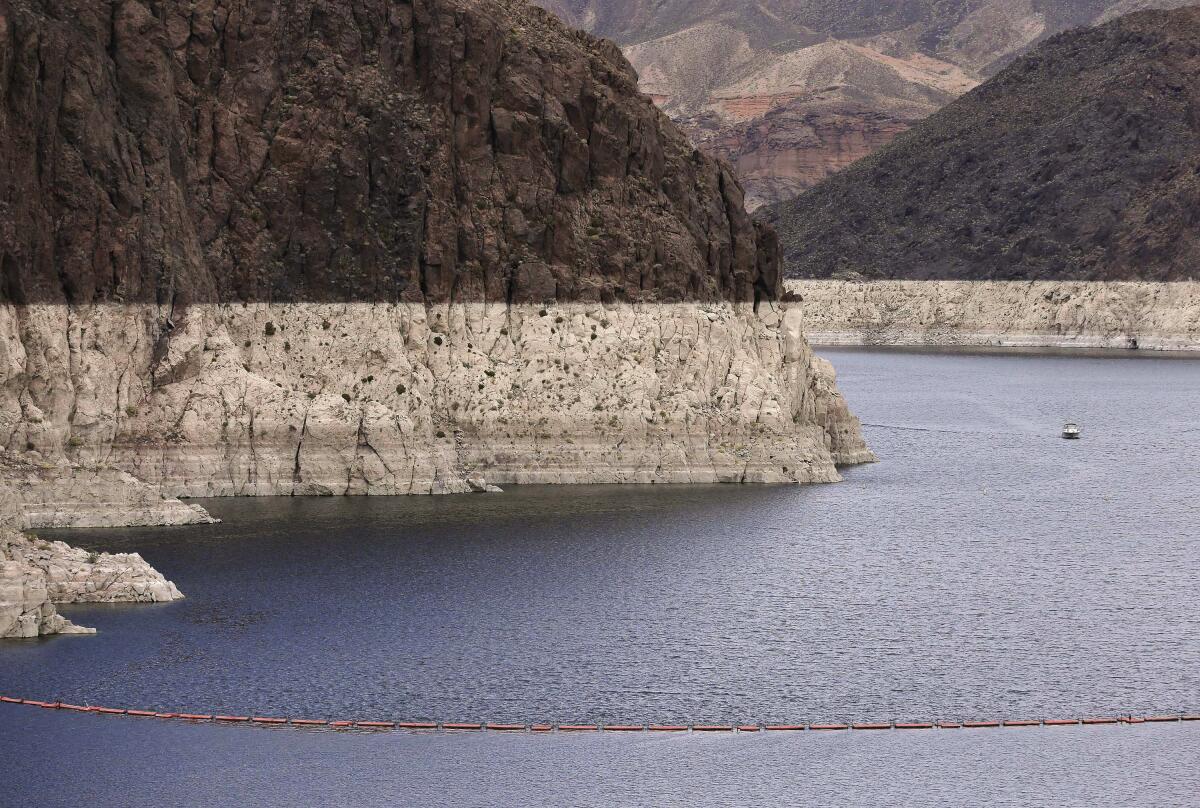Supreme Court will reconsider Navajos’ claim for more water from the Colorado River

- Share via
WASHINGTON — With California and the Southwest facing a historic drought, the Supreme Court agreed Friday to review a 9th Circuit Court decision that held the Navajo Nation has a right to take more water from the Colorado River.
The appeals court had pointed to the 1868 treaty in which the U.S. government agreed the Navajos would have a “permanent home” on their reservation, ruling the treaty “necessarily implied rights” to an adequate amount of water to live and farm.
“It is clear that the Reservation cannot exist as a viable homeland for the Nation without an adequate water supply,” wrote Judge Ronald M. Gould, yet “many homes on the Reservation lack running water.”
Based on the treaty, the Navajos are entitled to bring “a breach of trust claim” against the United States and the Department of the Interior, which he said “have an irreversible and dramatically important trust duty requiring them to ensure adequate water for the health and safety of the Navajo Nation’s inhabitants in their permanent home reservation.”
The 3-0 ruling did not say how much extra water the Navajos were entitled to. The sprawling reservation previously used water from the San Juan River in Utah, a tributary of the Colorado, but the 9th Circuit panel said the Navajos were entitled to bring a claim for more water from the lower part of the main river.
The Biden administration and the state of Arizona asked the justices to review and overturn the appeals court decision, as did water authorities including the Metropolitan Water District of Southern California.
Lawyers for Arizona said the 9th Circuit’s ruling “immediately threatens the security of existing entitlements” to water from the Colorado River. This water “is already fully allocated and is experiencing a mega drought accompanied by drastically depleted storage in Lake Mead.”
The attorneys said the ruling, if allowed to stand, could give other tribes the right to more water.
Arizona’s lawyers said the 9th Circuit Court should have steered clear of the issue because the Supreme Court has overseen the allocation of water from the Colorado River for decades in the case of Arizona vs. California.
Solicitor Gen. Elizabeth Prelogar, representing the Interior Department, told the justices that the 9th Circuit’s decision was clearly wrong and should be overturned. She said that the 1868 treaty did not include specific guarantees involving water rights.
She also noted that the Navajo Nation’s borders had greatly expanded in the 20th century, and that the areas seeking more water from the Colorado River were not part of the reservation in 1868.
The court plans to hear the two cases, Department of the Interior vs. Navajo Nation and Arizona vs. Navajo Nation, early next year and issue a decision by the end of June.
More to Read
Get the L.A. Times Politics newsletter
Deeply reported insights into legislation, politics and policy from Sacramento, Washington and beyond. In your inbox twice per week.
You may occasionally receive promotional content from the Los Angeles Times.










